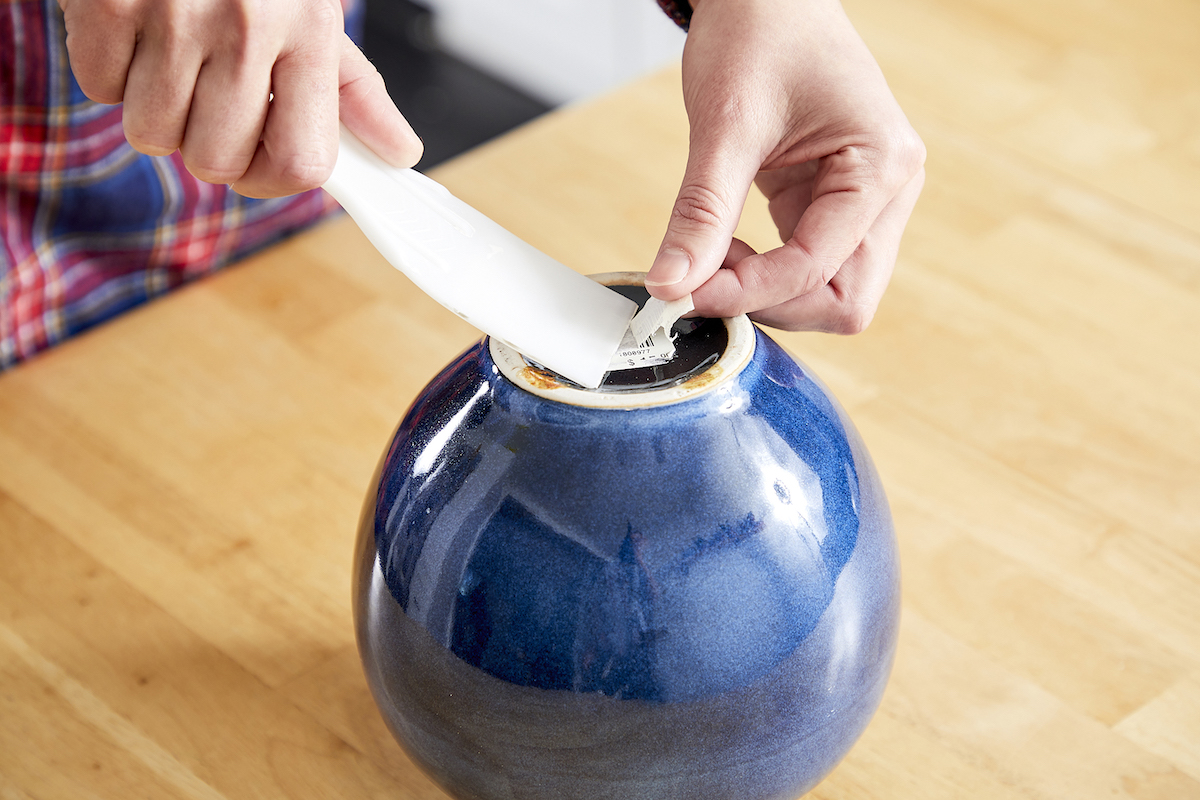

We may earn revenue from the products available on this page and participate in affiliate programs. Learn More ›
Price stickers, labels on jars, decals—these informative, decorative, or simply provocative sticky things can be surprisingly tough to remove. Even when you succeed in peeling off most of a sticker, you may be left with stubborn bits of adhesive or paper labeling.
The next time you need to scrape the price off a mug before you slide it into a gift bag, or pry a no-longer-cool decal off your teen’s bedroom door, try one (or two) of these methods that require little more than a few common kitchen items, paper towels, and microfiber cloths.
9 Ways to Remove Sticker Residue From Everyday Surfaces
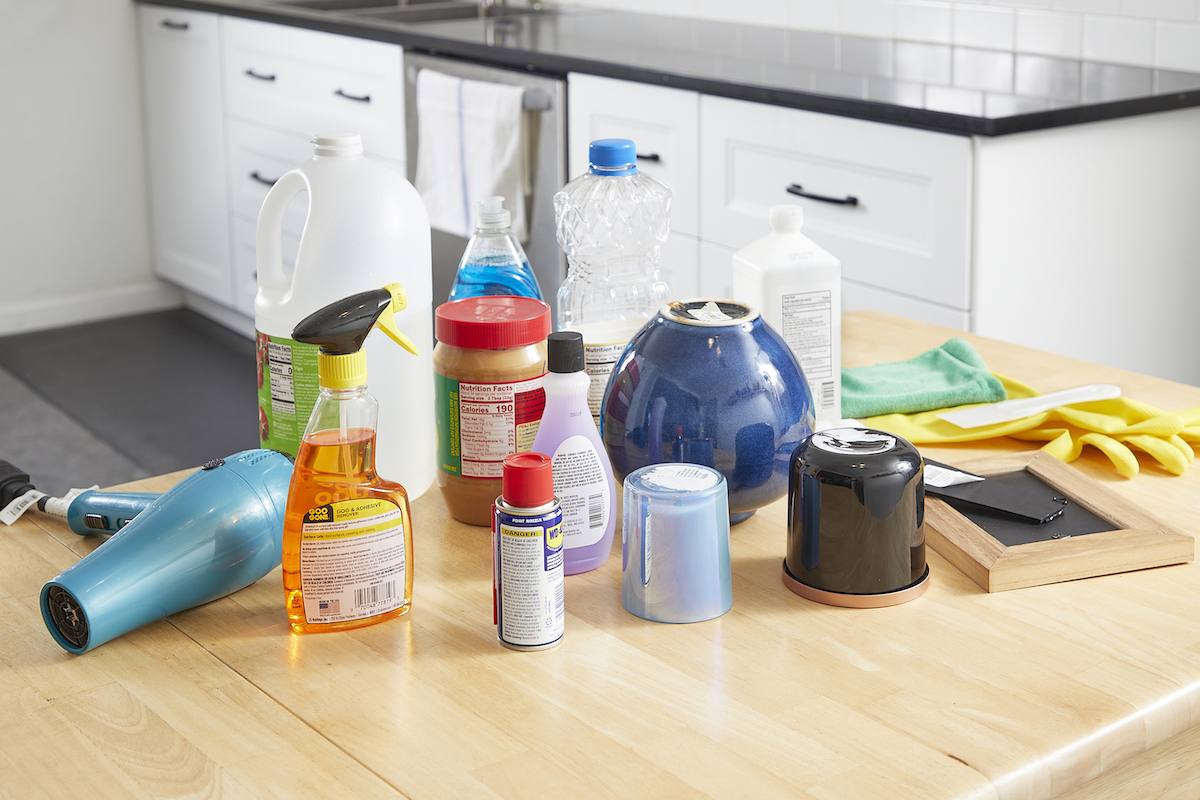
No matter which of these methods you choose, the first step involves peeling off as much of the sticker as possible. Use your fingers or a plastic scraper, credit card, or spatula. To protect the surface from scratches, do not use metal.
After you’ve removed most of the sticker, you may be able to rub away the residue with your fingers or pick at it with your nails. If that doesn’t work and you’re still left wondering how to get sticker residue off of common household surfaces, move on to one of the following approaches, but proceed with caution.
Always test in an inconspicuous spot. This test is especially important if you’re working with oily substances or solvents, or if the sticky surface is porous like plywood or unfinished wood.
1. Hot Water
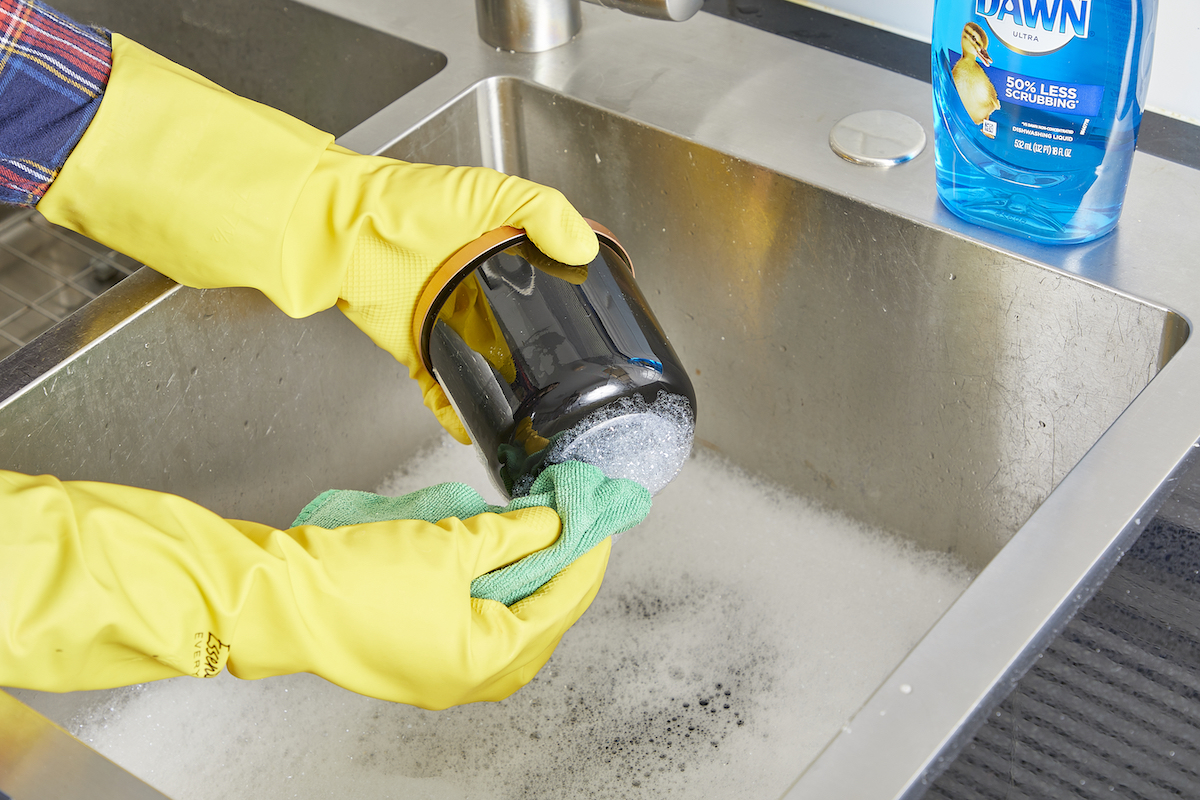
If the stickered item can be submerged in water, try soaking it in a sink or bucket full of hot, soapy water. This is one of the best methods to try if you’re trying to figure out how to remove sticker residue from glass.
It may take up to an hour for the sticker to soften. Once the sticker residue has loosened, coax it off with a plastic scraper. Repurpose the glass jar for crafting, storage, pickling or whatever strikes your fancy!
2. Rubbing Alcohol
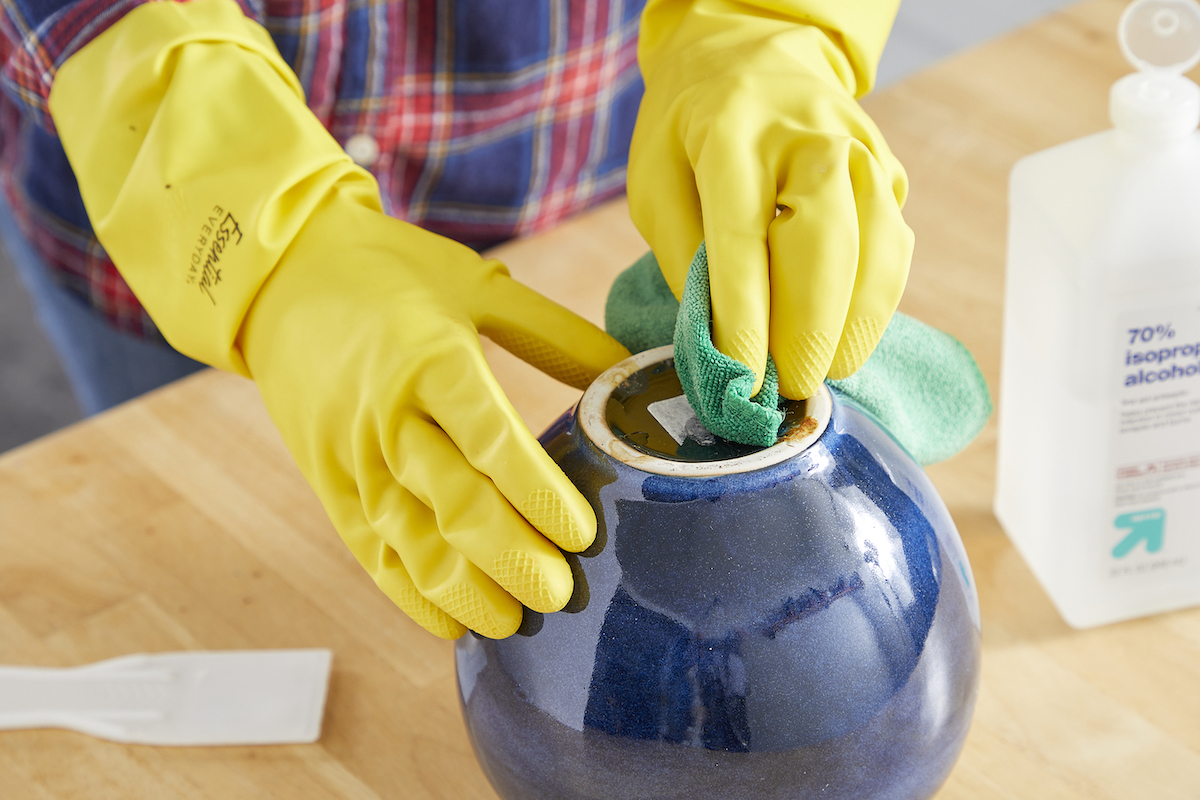
Apply a little rubbing alcohol to a soft, dry cloth, and rub away the residue. If that doesn’t do the trick, soak a paper towel in rubbing alcohol, place it over the sticker, and let it sit for a few minutes. Wipe away the residue with a clean, damp cloth, and then wash the surface with warm, soapy water.
Note that rubbing alcohol may damage the finish on painted or varnished wood and some metals, and test before using on certain plastics.
3. Cooking Oil
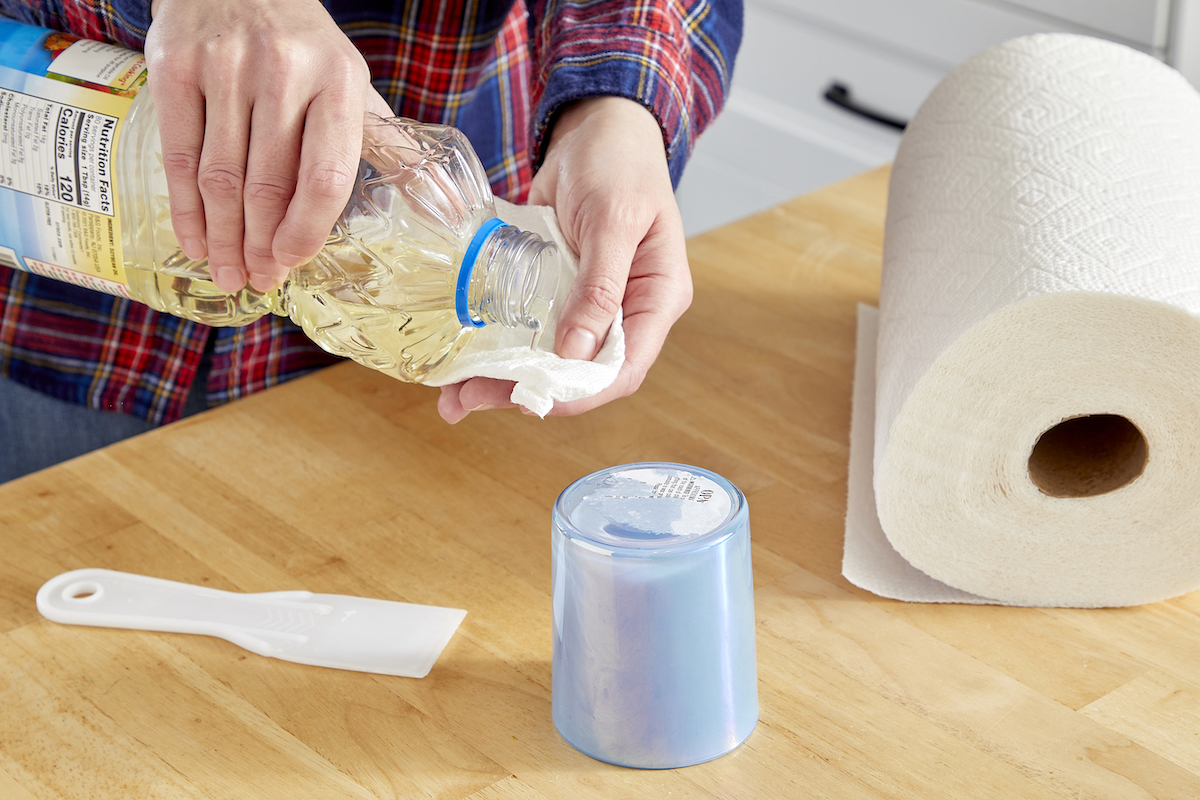
Pretty much any cooking oil, such as olive, vegetable, grapeseed, or coconut oil, can help remove a sticker. Pour some oil on a paper towel and apply it to the offending sticker. Wait 10 minutes or so and then either rub away the residue with a clean, dry towel or scrape it away with a plastic scraper. Finish up by cleaning with warm, soapy water.
4. Vinegar
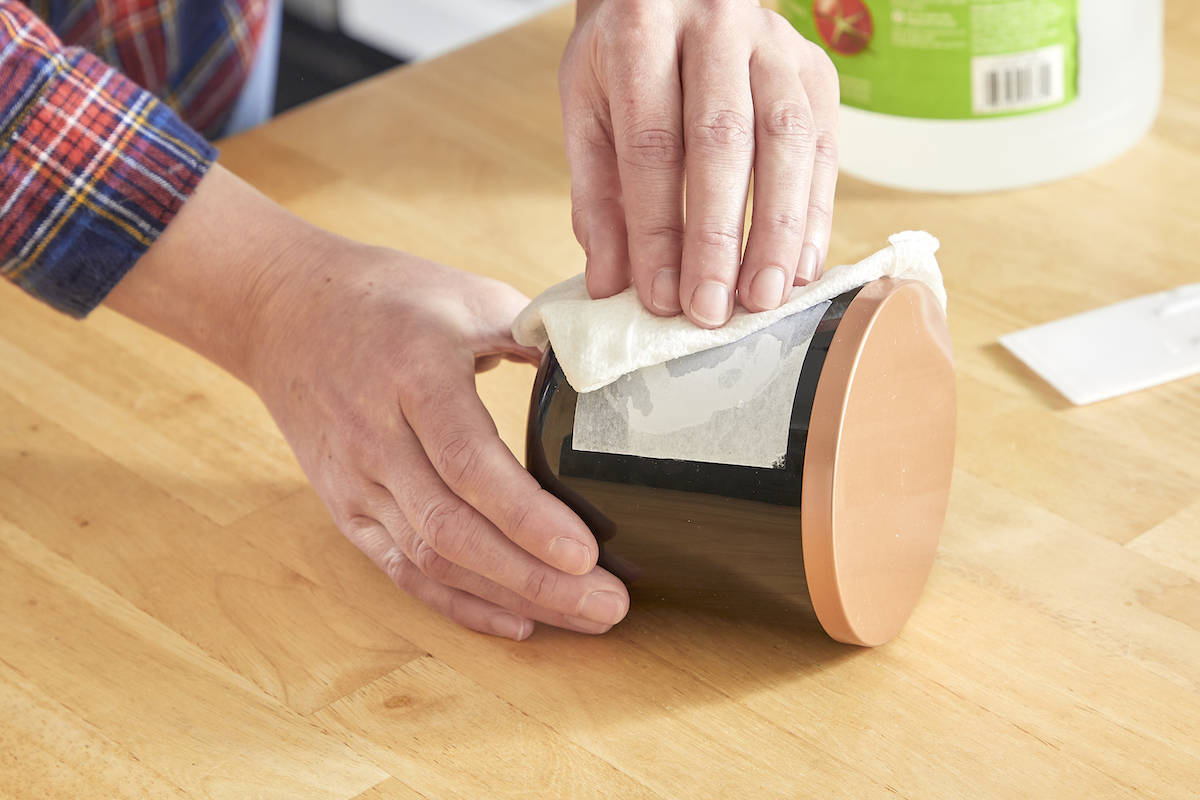
Pour vinegar on a paper towel or clean cloth and place the towel over the sticker. Wait a few minutes and then wipe off the residue with a clean, dry towel, or remove it with a plastic scraper. Wash off the surface with warm, soapy water.
Although vinegar has many household uses, avoid using it on stone surfaces, including granite, marble, and limestone, and don’t use it undiluted on quartz countertops.
5. Peanut Butter
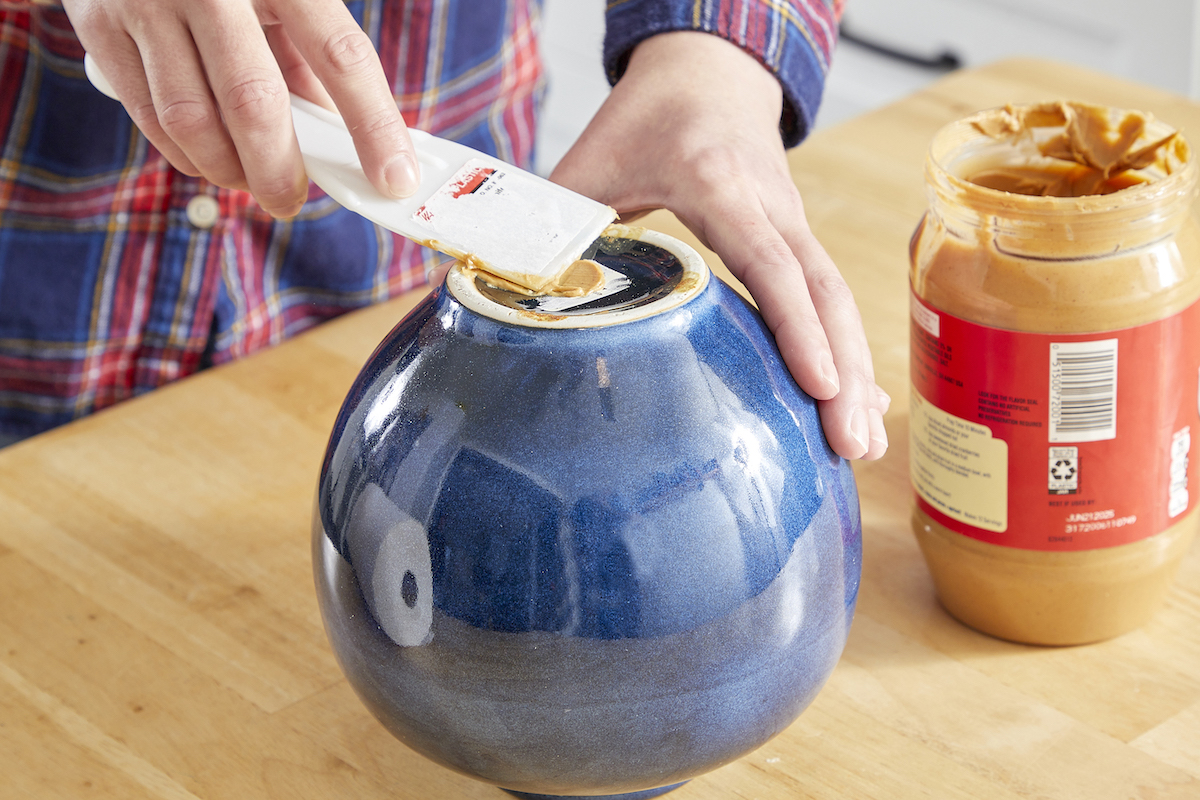
Thanks to its oil content, peanut butter is effective at removing sticker residue. Just rub a small amount of peanut butter over the sticker, let it sit, and then wipe it off with a paper towel. Then clean the surface with warm, soapy water to remove any lingering oil.
6. Hair Dryer
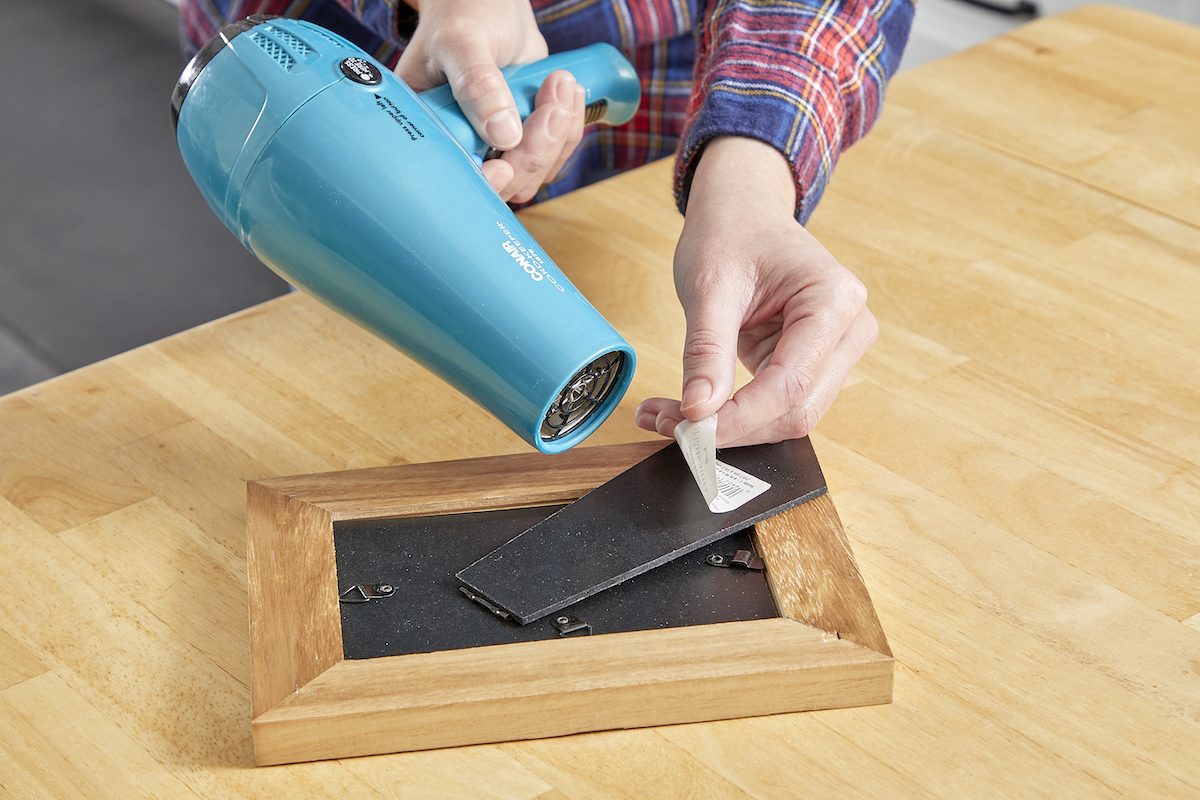
Set a blow dryer to high heat, hold it an inch or two away from the surface, and then run it over the sticker for about 45 seconds. Test the edge of the adhesive to see if it is loose enough to come up. If not, continue heating for another minute and try again. Wipe or scrape away the residue, and then follow up with warm, soapy water.
7. Nail Polish Remover
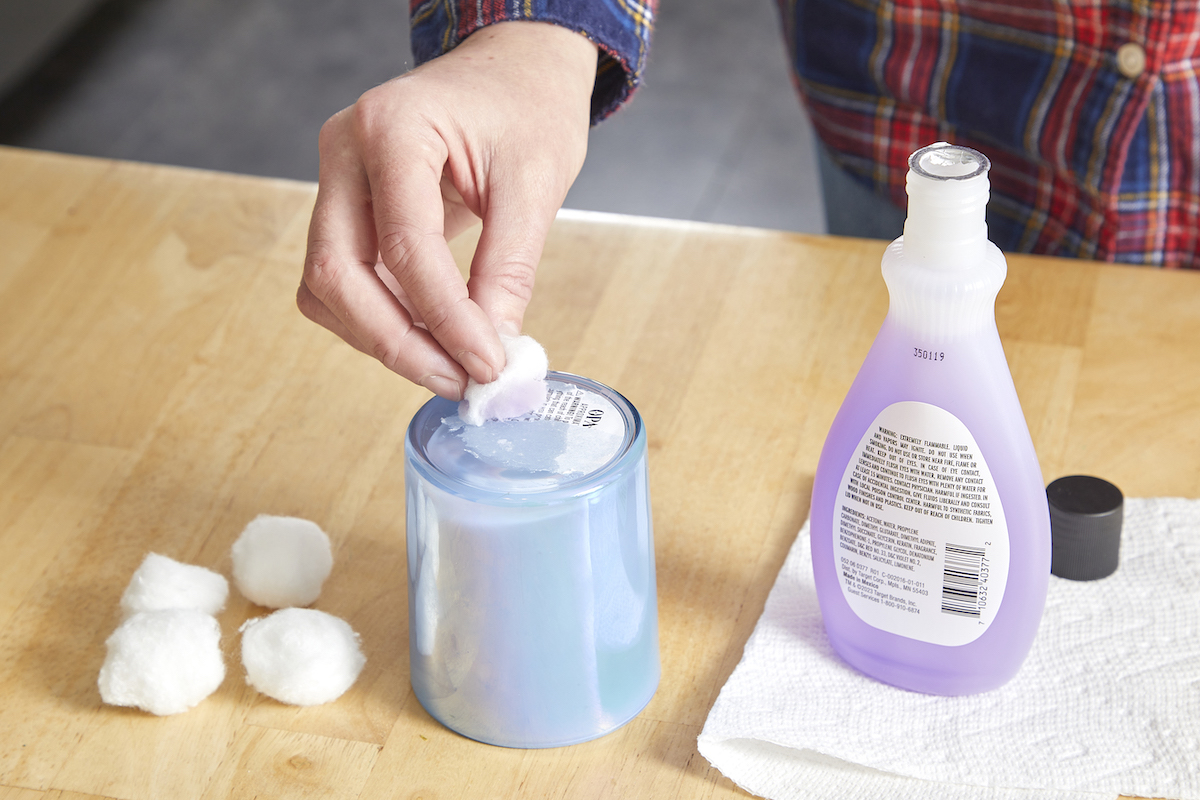
The primary ingredient in nail polish remover is acetone, a powerful solvent that can dissolve adhesives—it can even remove glue and super glue. Put some nail polish remover on a clean, dry cloth or a cotton ball, and rub it onto the sticker. Wait a few minutes, rub off the residue with a clean cloth, and wash the area with warm, soapy water.
While acetone works fine on glass and most metals, do not use it on painted surfaces, and test it in an inconspicuous place before using it on plastic. For a gentler option, try non-acetone nail polish remover.
8. WD-40
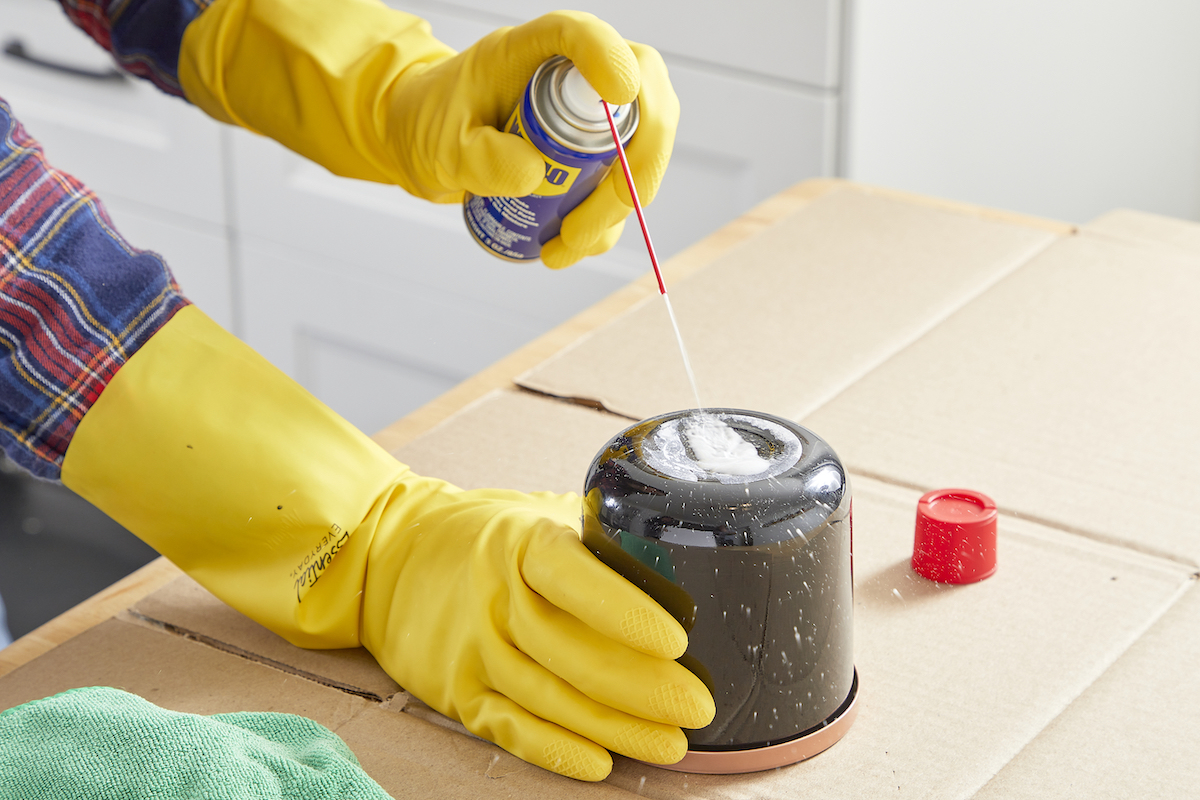
Apply WD-40 directly to the sticker and then wait 10 minutes. Rub with a clean, dry cloth to remove the residue, and then wash with warm, soapy water.
9. Commercial Adhesive Removers
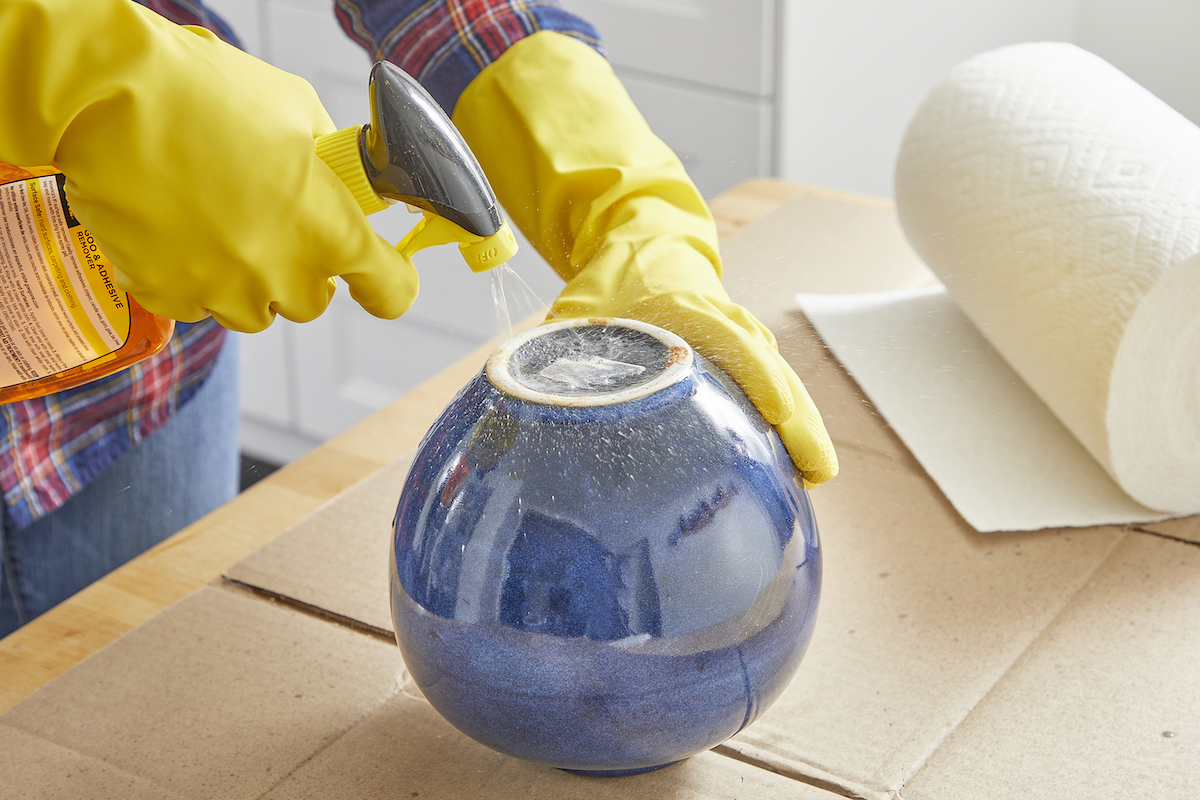
Goo Gone, Goof Off and similar products quickly remove residue left by labels, stickers, duct tape, and other persistent adhesives. Always read the instructions carefully and be aware that these products can damage certain surfaces, including rubber, drywall, unfinished wood, and unsealed stone.
How to Remove Sticker Residue From Clothes
Getting sticker residue off clothing presents special challenges and carries the risk of damaging or discoloring the fabric. The best strategy here is a good defense: Check your clothes for stickers and stains before you toss them in the wash. According to Daniel Fitzgerald, vice president of operations at Illinois-based CD One Price Cleaners, “Removing stickers first-off is your best bet. Once you run something through the washer and dryer, the heat can set the adhesive.”
If a sticker does make it through, try a few home remedies, starting with dish detergent, warm water, and elbow grease.
“Dish detergent has a degreasing element that will remove oil-soluble adhesives,” notes Fitzgerald. Some people recommend using vinegar or rubbing alcohol, but Fitzgerald warns that these can pull color from garments. This approach works for natural fabrics and synthetics. That said, you may want to take silks and wools as well as anything with a stubborn sticky stain to a professional.
Final Thoughts
Most stickers are fairly easy to remove, but if you’re stuck with frustratingly persistent residue, try a few of the methods listed above. Always start with the least chemical-intensive approach—it’s amazing what a little water, dish soap, and determination can do! And remember, especially if you’re using commercial adhesive removers or solvents like acetone, to thoroughly wash the once-sticky object before returning it to use.
